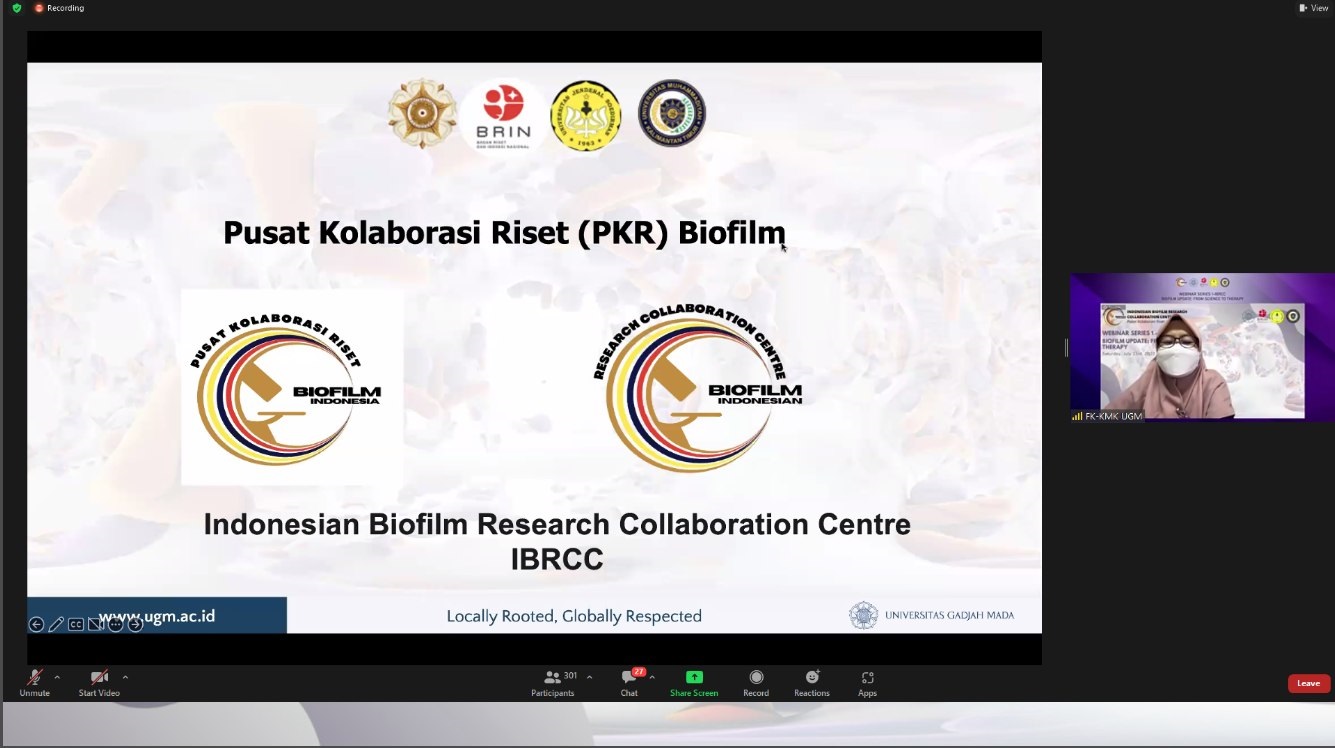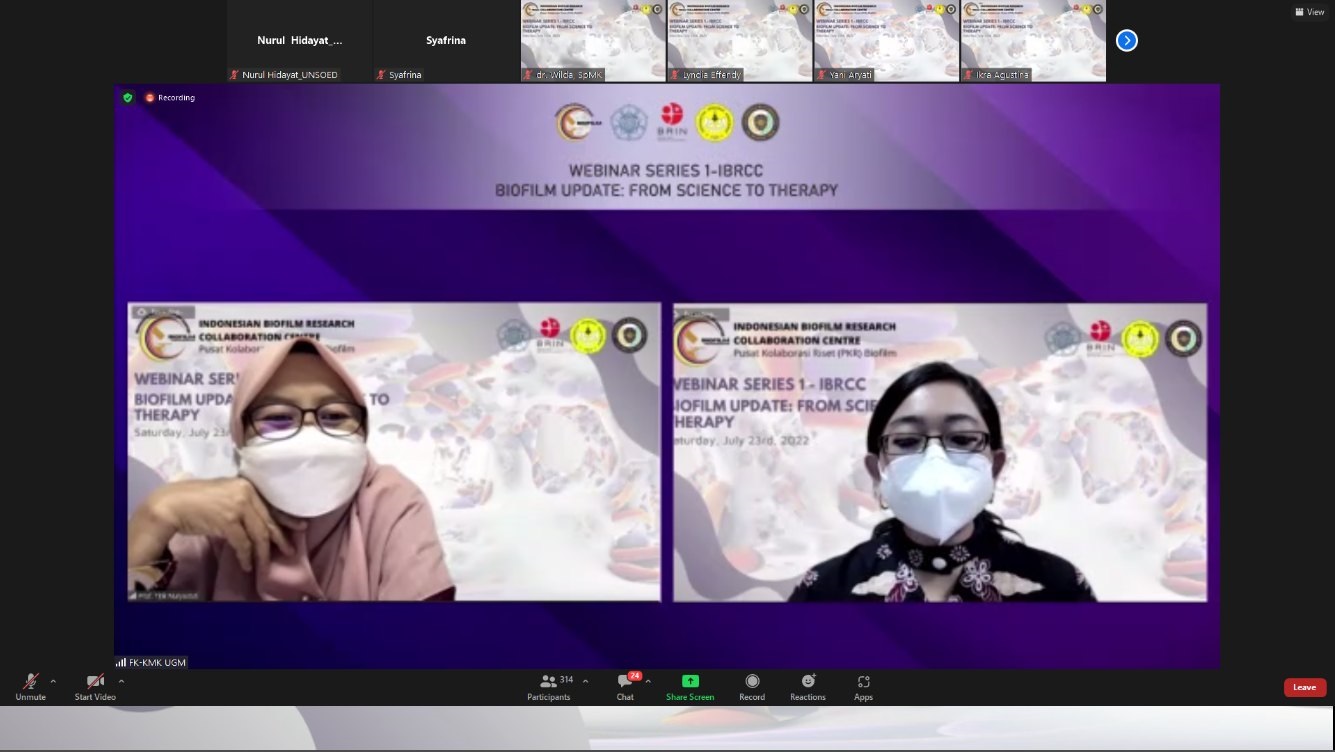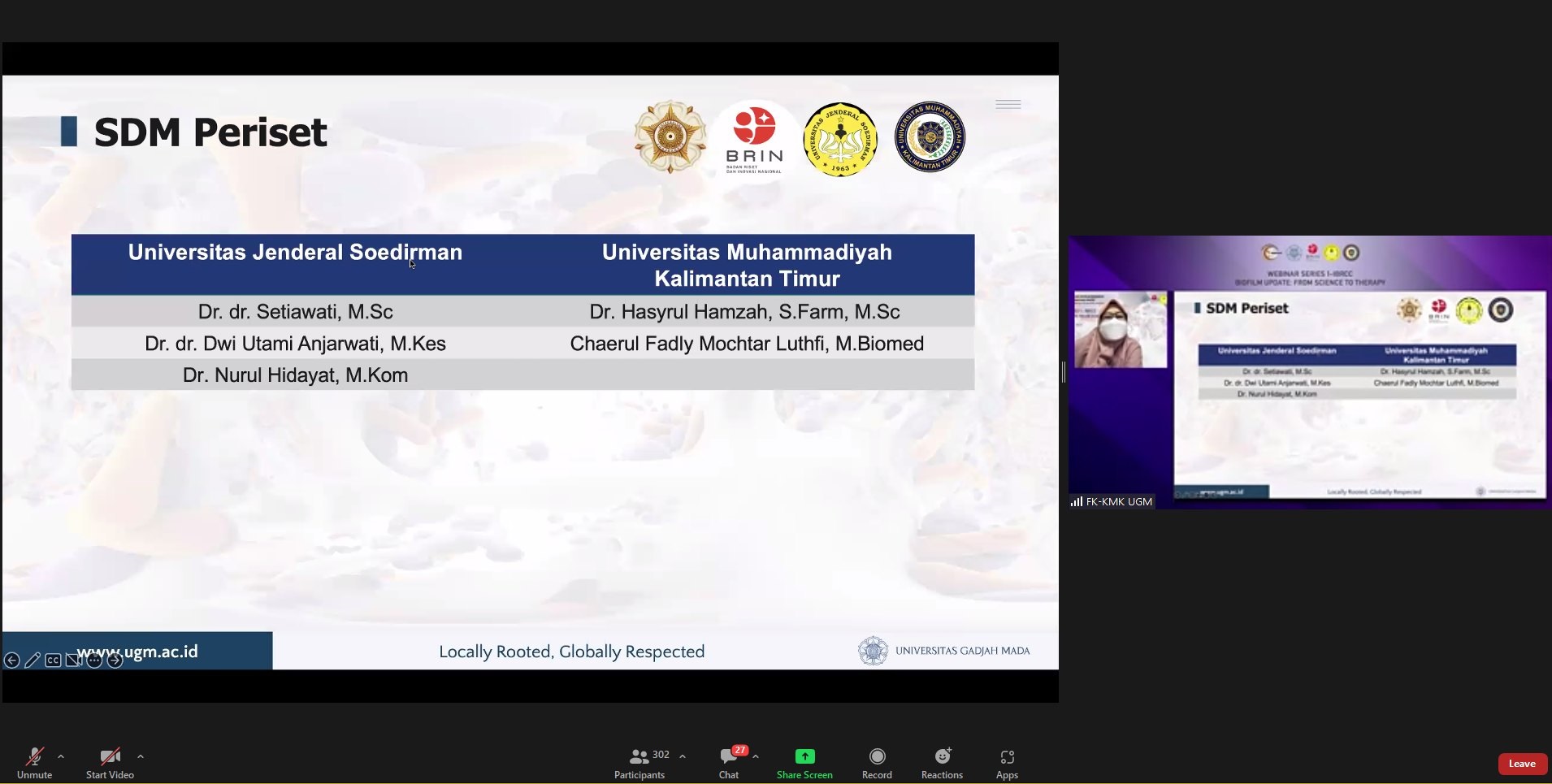UNSOED collaborates in Biofilm Research
[unsoed.ac.id, Mon, 25/07/22] Biofilm-related infections have not received the attention it deserves, meanwhile according to data from the National Institutes of Health, biofilms are the main mediator the occurrence of chronic infections and antibiotic resistance, and play a significant role in the incidence of infections related to health services in hospitals (HAIs).
Enforcement of infectious disease diagnosis and drug sensitivity testing is currently still focused on identifying pathogens in planktonic (free-living) conditions. Likewise, the infection control approach is more directed at the eradication of microorganisms in a planktonic state. This has the potential to cause failure of antibiotic therapy which can also trigger resistance, so it is necessary to approach the diagnosis and treatment of infectious diseases by considering the presence of biofilm colonies.
The increasing use of biomaterials in modern medicine has improved the quality of life of many patients. However, as a drawback, the incidence of biofilm-related infections is increasing and is now a serious health threat for patients, as well as a financial burden for the community. Biofilms can also act as a reservoir for infection, especially in patients with compromised immune systems.
To date, no antibiofilm compound has been approved by the FDA. The absence of a database on infectious diseases related to biofilms, and compounds that have the potential as anti biofilms from Indonesian biodiversity are problems that must be solved.
Researchers from Universitas Jenderal Soedirman (Unsoed), Gadjah Mada University (UGM), the National Research and Innovation Agency (BRIN), and the Muhammadiyah University of East Kalimantan (UMKT) already have a track record of research in the biofilm field. The biofilm research that has been carried out is multidisciplinary and interdisciplinary, both at national and international levels.
This Biofilm Research Collaborative Center received RISNOV funding from BRIN. Through this PKR Biofilm, Indonesia's biodiversity can be utilized to solve current local and global problems such as the issue of antibiotic resistance and the incidence of health care-associated infections (HAIs).
PKR Biofilm or Indonesian Biofilm Research Collaboration Center (IBRCC) aims to become a superior, lasting, sustainable Biofilm Research Collaboration Center with implications for the health sector, developing biofilm research in Indonesia, and producing science and technology human resources who have research capabilities in the field of biofilm and its development in order to increase Indonesia's research capacity.
In PKR Biofilm chaired by Prof. dr. Titik Nuryastuti, M.Sc., Ph.D., Sp.MK(K) the following composition of researchers are:
1. UGM: Prof. Mustofa, Prof. Triana Hertriani, dr. Rahadyan Magetsari, dr. Yudha Mathan Sakti, dr. Rizka Humardewayanti Asdie, Dr. Sylvia Utami Tunjung Pratiwi, Dr. Eti Nurwening Sholikhah, Dr. Soni Siswanto, Dr. Retantyo Wardoyo, and Dr. Tutik Dwi Wahyuningsih
2. BRIN: Dr. Puspita Lisdiyanti, Dr. Masteria Yunovilsa Putra, Gusnaniar PhD, Ira Handayani PhD, Linda Sukmarini PhD, Anggia Prasetyoputri PhD, Shanti Ratnakomala PhD, Akhirta Atikana PhD Alfi Taufik Fathurahman PhD, Ruby Setiawan PhD, and Dr. Ema Damayanti
3. Unsoed: Dr. Setiawati, Dr. Dwi Utami Anjarwati, and Dr. Nurul Hidayat
4. UMKT: Dr. Hasyrul Hamzah, and Chaerul Fadly Mochtar Luthfi, MSc
Recently, PKR Biofilm held a Webinar series 1 PKR Biofilm. This webinar aims to invite researchers to collaborate in research facilitated by the National Research and Innovation Agency (BRIN) and the pre-launching of the Biofilm Research Collaboration Center (PKR). This webinar was filled with resource persons from UGM, BRIN, Unsoed and UMKT, as well as Prof. Bastiaan Krom from the University of Amsterdam, the Netherlands. Participants who attended this webinar came from various institutions across Indonesia. (Kumala/PPDS Clinical Microbiology).
#unsoedmajuterus



